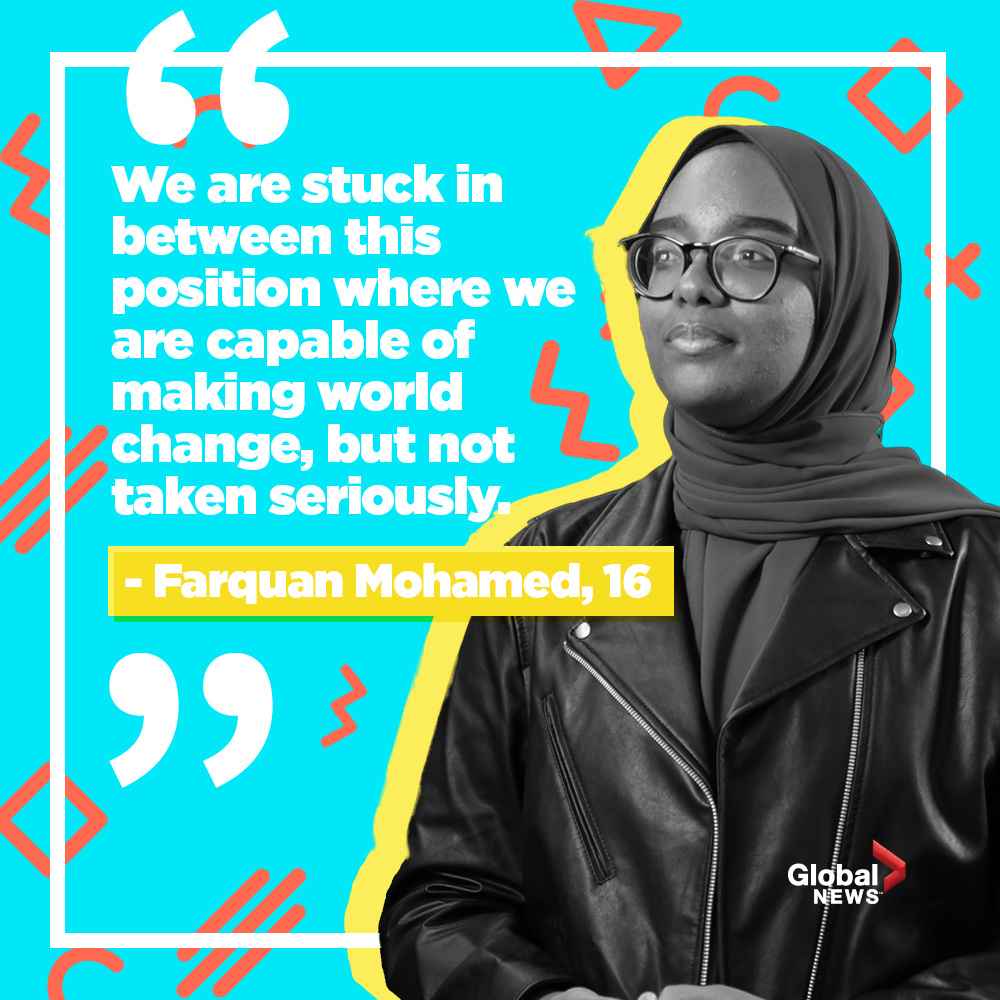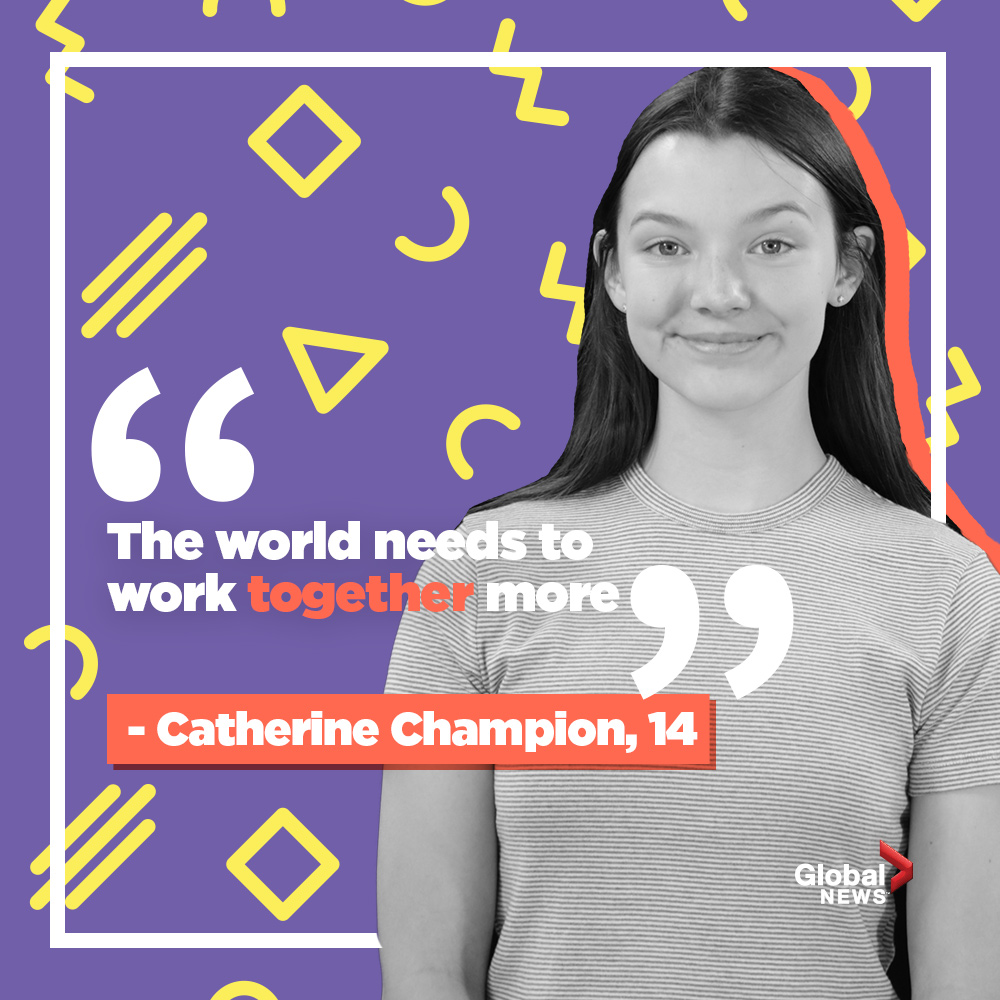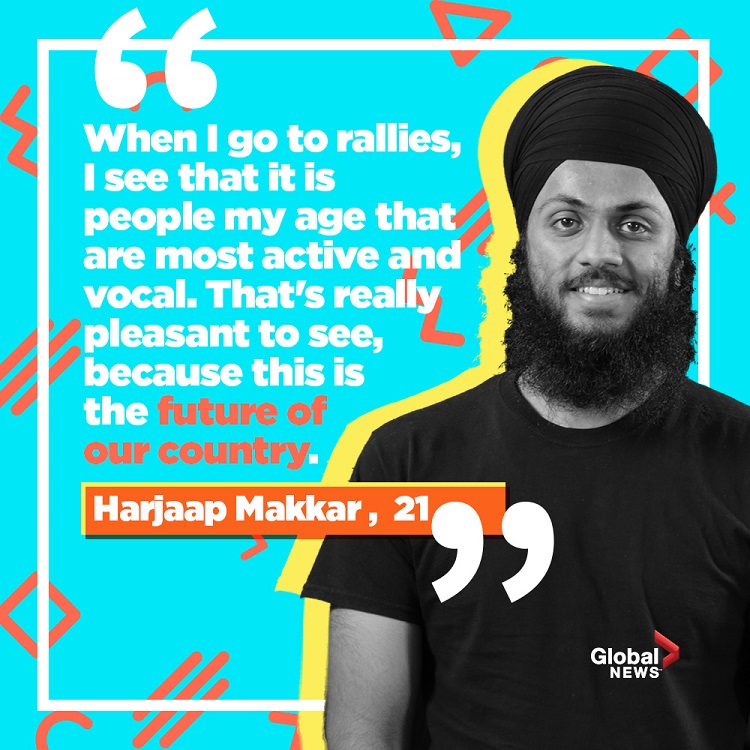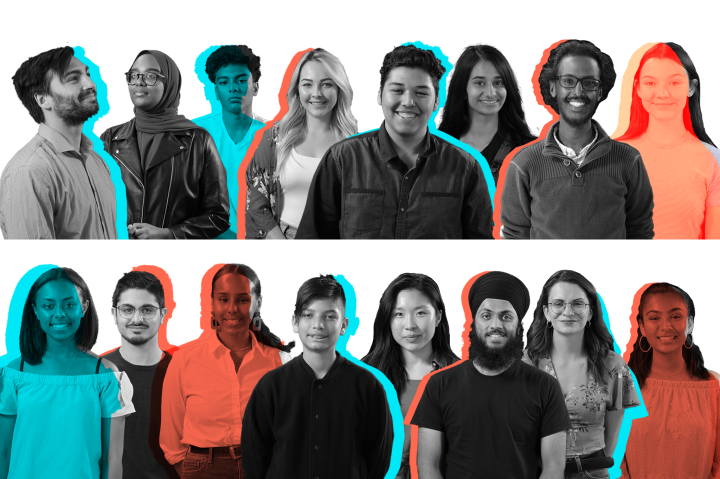
They’ve been on the planet for just a little over two decades, but generation Z has already made quite an impression.
The first members of this huge cohort (estimated to make up roughly 17.6 per cent of the country’s population, according to Statistics Canada) were born in the mid-1990s. Although there’s no established start or end date for gen Z, the oldest of them are now somewhere in their early 20s.
They are emerging as entrepreneurs, innovators, protesters and social media gurus. They are digital natives, born into an internet-connected world and bred to navigate that world with ease.
Gen Z’s present has always been one marked by upheaval and rapid change — economic, social and technological — with their futures imperilled by big problems like global warming, international terrorism and resource scarcity. But as they contend with, and build upon, the legacies of past cohorts, they are also laying the foundations for their own.
So the question becomes, what kind of world will gen Z leave to their children and grandchildren?
Optimistic, interconnected … and depressed
Four years ago, in an interview with Maclean’s magazine, social researcher Mark McCrindle dubbed gen Z a bellwether generation; where they went, he argued, the world would follow.
Perhaps more than any group before them, many experts feel these young people may have the power to grab hold of their elders and drag them (kicking and screaming, if necessary) into the future.
WATCH: Generation Z talks mental health

“We’re more optimistic when it comes to change,” says Manu Goswami, a 20-year-old entrepreneur, public speaker and UN Youth Ambassador who hails from Toronto.
“I would view our generation, particularly when it comes to technology like (augmented reality), (virtual reality) and artificial intelligence, as more optimistic about the applications of it, and we’re more likely to pay attention to advancing it.”
As they begin to make up more and more of the global workforce, Goswami predicts he and his peers will help drive much of the technological change that will shape the next 100 years.
Their fearlessness, at least when it comes to digital innovation, separates them from their parents, who still remember a time when boundless information wasn’t available at the swipe of a finger — but it comes at a price.
“We sometimes fail to realize where we need to draw a line,” Goswami acknowledges. “That’s very evident with social media.”
Mental health issues, closely intertwined with their use of technology, could form a darker aspect of gen Z’s legacy, he says.
Researcher and psychology professor Jean Twenge agreed in a recent interview with Global News, flagging a sudden increase in the rates of depression and unhappiness among teens that arose around the same time that smartphones became ubiquitous.
The trick, Twenge explains, will be imparting on gen Z the importance of moderating their use of technology.
If they can’t find a balance, neither will their children, and loneliness and anxiety may only become more widespread.
“It definitely is a problem that our generation will have to deal with,” Goswami warns.
Finding purpose
The volume of research on gen Z is growing with each passing year, and it reveals some interesting things about how they think and act. It may also help shed light on what they may prioritize in the coming decades.
Gen Z is more careful about money than millennials, for example, and more risk-averse when it comes to things like drugs, alcohol and sex. But they also tend to be quite liberal in some areas. They’re concerned about the environment, and more inclusive and accepting of diversity. That last part is what Goswami chalks up to regular exposure to people of different backgrounds — whether through travel or in their own increasingly diverse communities.
“Going forward, hopefully, as this generation gets into becoming the future lawmakers, future entrepreneurs, future doctors, that level of tolerance will emulate and show forth,” he says.
Gen Z is also unusually focused on finding meaning in their lives — and by extension, in their chosen careers. That, coupled with the fact that they’re simply better at managing their pocketbooks than their immediate predecessors, is setting them up to become a profoundly influential generation when it comes to both business and politics.
“They have a deeper connection to purpose, and meaning and wanting to make an impact in the world,” says Ilona Dougherty, managing director of the Youth and Innovation Project at the University of Waterloo.
Goswami is a prime example. He started a charity at 16, and has already launched his own media company, Trufan Inc., designed to help influencers, brands and agencies connect with their fans. But his ultimate ambition is to run for public office in Canada.
“Most people, in general fields, need to understand that our generation tends to have unconventional ways of doing things,” he says.
One of the biggest areas of disruption will be the education system, Goswami predicts. Whether the world is ready for it, gen Z is going to upend how future generations learn.
“There’s a fundamental revolt that’s starting to come up within our generation toward the education system and it’s going to be interesting to see what happens,” Goswami says. “Will the education system be able to adapt? When we become the future educators, will we do anything to change it? Will we make it more personalized … maybe a virtual environment?”
WATCH BELOW: How Generation Z could redefine today’s workplace and economy

All of this concentrated ambition could mean big shifts in the years to come, Dougherty says, but it also has the capacity to produce pretty significant clashes with older generations if they can’t learn to adapt.
“Our depth of knowledge about this generation is not that significant yet,” she added. “I think we’re just learning what gen Z is all about.”
A half-century of change
But for Dougherty, the very idea of separating gen Z from previous generations results in a too-limited view of their potential impact. They are, she argues, part of a continuum of change that began with generation X and continued into the millennial cohort (now approaching their 40s).
“We’re seeing everything intensify with each of these generations, but we can see a clear pattern,” Dougherty explains.
“What really defines these three generations — and I think what will really define gen Z — is a sense of instability.”
Part of that is undoubtedly financial. Millennials were the first group of young people whose parents worried they wouldn’t be as financially well off when it came time to leave the nest, Dougherty says, and that will likely continue with gen Z and beyond.
But another factor is the ever-lengthening gap between childhood and adulthood; the years when kids are no longer kids, or even teens, but “emerging adults” trying to find their place in the world. For gen Z, that gap is wider than ever.
WATCH: Who is Generation Z? Farah Nasser sat down with national online journalist Arti Patel to talk about this cohort of young people.

“There’s more instability in that in-between time, and that can be incredible in the sense that if you have a lot of support and you get to figure out who you are, figure out the kind of impact you want to have on the world … that can actually be a really positive thing,” Dougherty says.
Without the necessary supports, however, it’s potentially more likely that young people are going to fall through the cracks.
According to Dougherty, these broader patterns show no sign of shifting. Gen Z is — and will remain — part of an evolution that will continue long after they are gone.
“I think we’re just getting started.”
This week, Global News took a look at the many ways gen Z functions, from their views on mental health and the job market to how they take part in pop culture. As you’ll see, this is still a largely untapped generation. Follow along on Twitter with the hashtag #GenZed.
— Illustrations by Laura Whelan

















Comments
Want to discuss? Please read our Commenting Policy first.